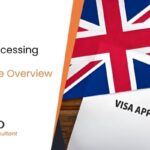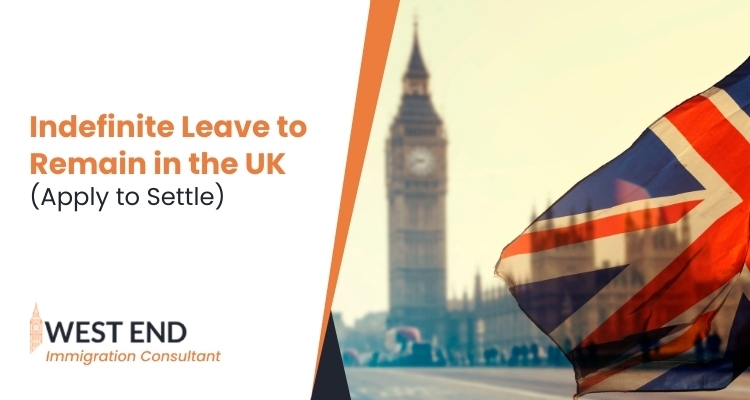
Shortage Occupation List UK 2025
October 23, 2024
UK Visa Processing Times – A Complete Overview
November 27, 2024Settlement in the UK
Achieving settlement, or indefinite leave to remain (ILR), is a common goal for many UK immigration applicants. This status grants individuals the right to reside in the UK permanently, free from restrictions, following a period of continuous residence and satisfying various immigration requirements, often including significant fees. However, not all visa routes lead to settlement, and some cannot be easily combined with others. Here, we outline work visa pathways that lead to settlement and highlight potential challenges applicants may encounter.
Understanding Settlement
The UK government now often refers to indefinite leave to remain as “settlement.” Settlement enables individuals to reside in the UK indefinitely without restrictions on their stay. With settlement, holders no longer need to extend their permission to remain, are unrestricted in their work or study activities, and can apply for British citizenship if they meet the relevant requirements.
Is Settlement Permanent?
Settlement is theoretically permanent but may be lost in specific circumstances. For instance, extended absences from the UK could cause settlement to lapse: individuals generally cannot remain outside the UK for more than two years (or five years for those with EU Settlement Scheme status) without risking their settlement status. Settlement may also be revoked if it was obtained fraudulently or due to criminal activity.
Obtaining Settlement Through a Work Visa Route
The path to settlement depends on the visa route. In work visa categories, we consider requirements for both main applicants and dependants.
1. Main Applicants
The following work visas can lead to settlement:
- Skilled Worker
- International Sportsperson
- Innovator Founder
- Scale-Up
- Tier 2 (Minister of Religion)
- Global Talent
- UK Ancestry
Additionally, certain now-closed routes, such as the Representative of an Overseas Business, Tier 1 (Entrepreneur), and Tier 1 (Investor) visas, can still lead to settlement for those already holding them. Each route has specific requirements, including residency periods and conditions tied to the visa type. For instance, Skilled Worker applicants must meet a minimum salary threshold and obtain a letter from their sponsor confirming that their role remains necessary.
2. Dependants
Dependants, including spouses and children, may apply for settlement alongside the main applicant. They generally face simpler requirements, such as proving that their relationship with the main applicant remains valid. Dependants typically must also reside in the UK for five continuous years. Children can apply if both parents are eligible for settlement unless one parent has sole responsibility.
3. Long Residence Route: 10 Years of Lawful Residency
The 10-year lawful residency route offers another path to settlement. This option applies to individuals who have resided legally in the UK for 10 continuous years, regardless of the specific visa route(s) they held. Most forms of lawful immigration status count toward this period, except for time spent as a visitor, short-term student, or seasonal worker.
This route benefits applicants who may not have met the continuous residence requirements under any single visa category but have maintained lawful residence overall. Applicants must also meet other general settlement requirements, including absence limits (no more than 180 days in any rolling 12-month period), passing the Life in the UK test, and demonstrating English language proficiency.
Which Work Routes Don’t Lead to Settlement?
Certain temporary work routes are designed for short-term stays and don’t provide a path to settlement. These include:
- Seasonal Worker Visa
- Temporary Work Visas (such as the International Agreement Visa, Creative Worker Visa, and Charity Worker Visa)
- Youth Mobility Visa
- Senior or Specialist Worker Visa (Global Business Mobility)
- High Potential Individual Visa
- Graduate Visa
Periods spent on these visas don’t count towards continuous residence requirements for settlement, nor do periods under other temporary routes like student or visitor visas, unless applying under the 10-year long residence route.
Combining Time Across Work Visa Routes
In many cases, applicants may combine time across certain main work visa routes to satisfy continuous residence requirements. However, some routes—such as the Scale-Up, Innovator Founder, or Representative of an Overseas Business—cannot combine with other routes for settlement purposes if they are the current permission. Exceptions apply if an applicant has switched from one of these routes to another.
Dependants’ time as a dependant cannot combine with time as a main applicant and vice versa. Families should carefully choose a main applicant to avoid potential delays in their settlement timeline.
General Requirements for Settlement
All applicants must meet specific requirements, including a limit on absences (typically 180 days in any rolling 12-month period), passing the Life in the UK test, and meeting English language proficiency standards. Some exceptions may apply based on age or personal circumstances.
When to Apply for Settlement
Most work routes require five years of continuous residence to qualify for settlement. However, certain routes offer faster pathways. For instance:
- Innovator Founder applicants may qualify after three years.
- Global Talent applicants may qualify after three years if endorsed as “exceptionally talented” by specified organisations.
- Tier 1 (Investor) applicants may qualify after two years if they invested £10 million or three years with a £5 million investment.
It’s important to note that these accelerated routes don’t apply to dependants, who must still wait the full five years.
After Achieving Settlement
Once settled, individuals are free to work, study, and travel with only one restriction: they should not remain outside the UK for over two years. Those married or in a civil partnership with a British citizen may apply for citizenship immediately if they have lived in the UK for three continuous years. Others must wait a year after obtaining settlement before applying for naturalisation.
This comprehensive look at work visa routes to settlement, including the 10-year long residence option, can help applicants navigate the UK’s complex immigration system, supporting their path toward indefinite residence and, potentially, British citizenship.


